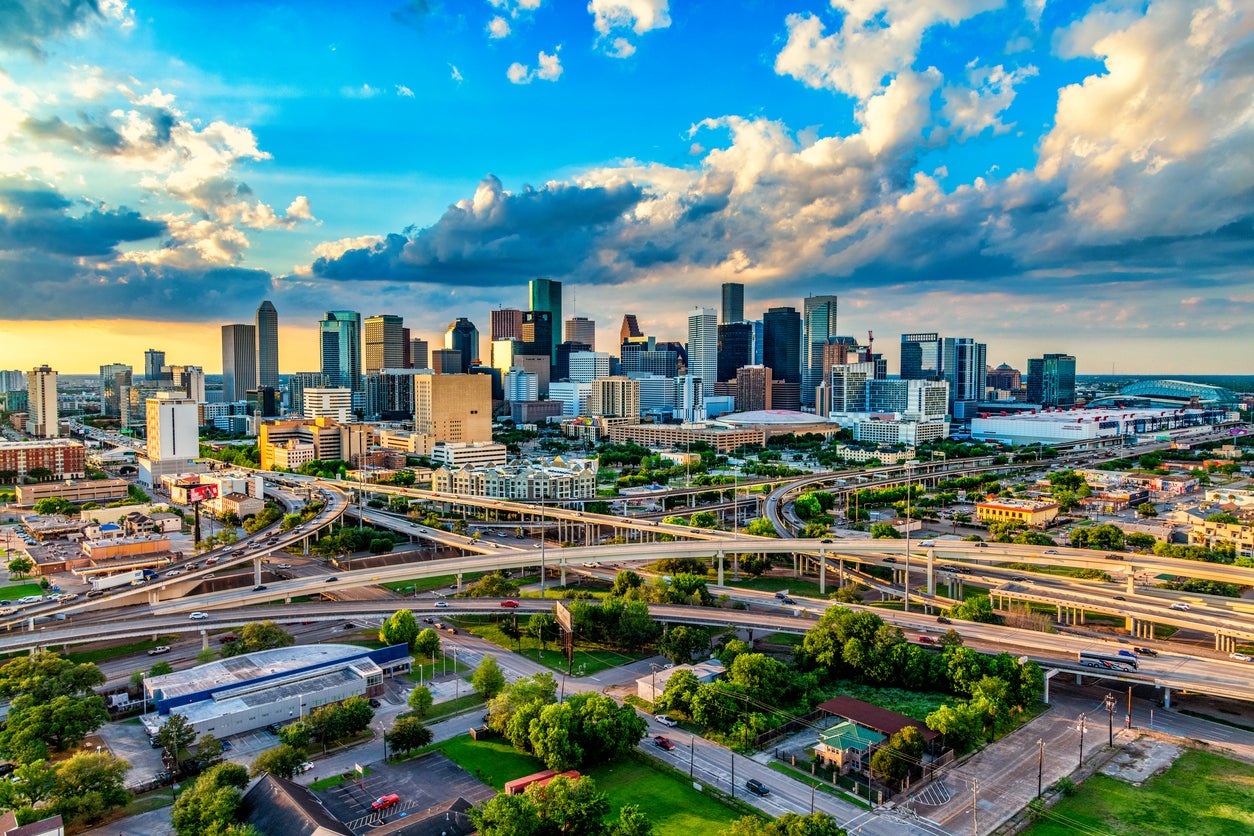
Beyond the Alamo: Texas’s Historic Havens for the Digital Nomad
The digital nomad revolution has reshaped our understanding of work and lifestyle, freeing professionals from geographical constraints. While sun-drenched beaches and bustling metropolises often dominate the conversation, a growing segment of this mobile workforce seeks something deeper: a sense of place, a connection to the past, and a rich cultural tapestry to explore. For these history-loving digital nomads, Texas, with its sprawling landscapes and pivotal role in American history, offers a compelling, often overlooked, frontier.
Texas is more than just oil wells and rodeos; it’s a land where empires clashed, revolutions were fought, and new futures were forged. From Spanish colonial missions to the birth of space exploration, the Lone Star State boasts a historical narrative as vast and diverse as its geography. Crucially, many of its cities have also embraced the digital age, offering robust infrastructure, a thriving startup scene, and a cost of living that often undercuts coastal tech hubs.

So, for those who dream of remote work punctuated by historical exploration, where the Wi-Fi is strong and the past is palpable, Texas beckons. Let’s delve into some of the best Texan cities where history meets the future for the discerning digital nomad.
1. San Antonio: Where Texas Began (and Continues to Thrive)
Historical Heartbeat: If Texas history has a spiritual home, it’s San Antonio. This city is the very cradle of Texan independence and a living testament to centuries of cultural fusion. Its crown jewel, of course, is The Alamo, the iconic mission fortress where a small band of Texan defenders made their legendary stand. But San Antonio’s historical depth extends far beyond that single, famous battle. The city is home to four other Spanish colonial missions – Mission Concepcion, Mission San Jose, Mission San Juan, and Mission Espada – collectively designated a UNESCO World Heritage Site, making San Antonio the only city in Texas with such a distinction. These missions offer an unparalleled glimpse into 18th-century Spanish colonial life, architecture, and the evangelization of Native Americans.
Beyond the missions, the San Antonio Riverwalk, while a modern marvel of urban planning, winds through historic districts, offering charming walks past old churches, grand hotels, and vibrant markets that echo the city’s mercantile past. The King William Historic District, an affluent neighborhood developed in the late 19th century by German immigrants, showcases stunning Victorian architecture, providing a stark contrast to the earlier Spanish colonial style.
Digital Nomad Appeal: San Antonio perfectly blends its historical charm with a burgeoning modern infrastructure. The city boasts a growing tech sector and a supportive environment for entrepreneurs. Coworking spaces like VenturePoint and Geekdom provide excellent connectivity and networking opportunities. The cost of living is significantly lower than major coastal cities, making it an attractive option for nomads seeking to stretch their budget without sacrificing quality of life.
Internet speeds are generally excellent, and the city’s mild winters are a definite plus. For social life, the Riverwalk offers endless dining and entertainment options, while the Pearl District, a revitalized historic brewery complex, is now a culinary and cultural hotspot with farmers’ markets, boutique shops, and a vibrant nightlife. The blend of rich history, affordability, and a growing professional scene makes San Antonio a top contender for the history-loving digital nomad. As a local saying goes, "You don’t visit San Antonio; you experience it."
2. Austin: The Capital of Cool (and Rich History)
Historical Heartbeat: While often celebrated for its "Keep Austin Weird" counter-culture and live music scene, Austin is also the political and historical heart of Texas. The majestic Texas State Capitol Building, taller than the U.S. Capitol, stands as a symbol of Texas’s fiercely independent spirit and rich political history. Its grounds are dotted with statues and monuments commemorating key figures and events in the state’s past.

A visit to the Lyndon B. Johnson Presidential Library and Museum offers a deep dive into the life and times of the 36th U.S. President, a pivotal figure in American history, particularly regarding civil rights. The Bullock Texas State History Museum provides an immersive journey through Texas’s entire narrative, from indigenous peoples to space exploration, featuring artifacts, interactive exhibits, and a large-format theater. Even Austin’s famous live music scene has its own history, with iconic venues like the Continental Club having hosted legends for decades.
Digital Nomad Appeal: Austin is arguably the most digital nomad-friendly city in Texas, a bona fide tech hub known as "Silicon Hills." It boasts an abundance of coworking spaces, from global giants like WeWork to local favorites, offering diverse environments for remote work. Internet infrastructure is top-tier, and the city is renowned for its vibrant startup ecosystem, which fosters innovation and networking.
The cost of living in Austin is higher than in other Texas cities but remains significantly more affordable than San Francisco or New York. The city’s youthful energy, outdoor recreation opportunities (Lady Bird Lake, Zilker Park), and unparalleled food scene (especially food trucks) provide a dynamic backdrop for remote work. For the history enthusiast, the ability to seamlessly transition from a productive workday to exploring presidential archives or the grandeur of the state capitol is a powerful draw. "Austin is a big city with a small-town feel, and that’s what makes it special," notes a local tech entrepreneur, perfectly encapsulating its appeal.
3. Galveston: Island Time, Echoes of the Past
Historical Heartbeat: Step onto Galveston Island, and you’re transported back in time. This charming coastal city, once Texas’s largest and wealthiest, is a treasure trove of Victorian architecture and a poignant testament to human resilience. The Strand Historic District, a National Historic Landmark, is lined with beautifully preserved 19th-century buildings that once housed cotton brokers and mercantile empires. A walk through these streets reveals intricate ironwork, ornate facades, and a sense of a bygone era.
Galveston’s history is also marked by tragedy, most notably the devastating 1900 Storm, the deadliest natural disaster in U.S. history. The city’s recovery and the subsequent construction of the Seawall are powerful stories of human determination. Visitors can explore the 1892 Bishop’s Palace, a magnificent Victorian mansion, or the Grand 1894 Opera House, which has hosted performances for over a century. The island also has a rich history as a major port of entry, often called the "Ellis Island of the West," with many immigrant families passing through its gates. Even its pirate lore, tied to Jean Lafitte, adds to its mystique.
Digital Nomad Appeal: Galveston offers a unique proposition for the digital nomad: a relaxed, island pace combined with deep historical immersion. While not a tech hub like Austin, it provides reliable internet and a handful of local coworking options. The cost of living is remarkably affordable, especially compared to other coastal destinations, making it an excellent choice for those seeking a more budget-friendly and less frenetic lifestyle.
The island’s unique charm, with its historic piers, sandy beaches, and numerous festivals, provides ample opportunities for leisure and inspiration. For the history buff, living amidst such well-preserved architecture and significant historical sites is a daily delight. Imagine working from a historic Victorian apartment, then stepping out to explore a grand old mansion or walk along a beach with centuries of stories. Galveston reminds us that history isn’t just in museums; it’s in the very fabric of the streets.
4. Houston: The Future Built on the Past
Historical Heartbeat: Houston, Texas’s largest city, might seem like a futuristic metropolis at first glance, but its history is as vast and complex as its sprawling footprint. Its most famous historical contribution is undoubtedly Space Center Houston, the official visitor center of NASA Johnson Space Center. Here, you can touch a moon rock, explore the historic mission control center that guided Apollo 13, and witness the incredible journey of human space exploration. This isn’t just recent history; it’s the history of humanity’s reach for the stars.
Beyond space, Houston’s origins lie in the Buffalo Bayou, the waterway that allowed it to become a major port and oil industry powerhouse. The city’s Museum District is a testament to its cultural evolution, housing institutions like the Houston Museum of Natural Science, the Museum of Fine Arts, Houston, and the Houston Holocaust Museum, each offering a distinct historical perspective. The city’s incredible diversity also means a rich tapestry of cultural histories, from Vietnamese enclaves to vibrant Hispanic neighborhoods, each contributing to Houston’s unique identity.
Digital Nomad Appeal: Houston is a global city, offering a robust infrastructure perfect for digital nomads. It boasts a vast array of coworking spaces, high-speed internet across its diverse neighborhoods, and a lower cost of living than comparable mega-cities. Its immense size means endless options for dining, entertainment, and cultural experiences.
While navigating Houston often requires a car due to its expansive nature, its sheer scale also means opportunities for diverse experiences. For the history-loving nomad, the ability to delve into space history one day, explore a world-class art museum the next, and then immerse oneself in the historical narratives of its incredibly diverse communities provides a dynamic and stimulating environment. As Houston’s unofficial motto goes, "Houston: It’s all about possibility."
5. Dallas: Big D, Big History
Historical Heartbeat: Dallas, often synonymous with corporate power and modern skyscrapers, holds a significant, albeit sometimes somber, place in American history. The Sixth Floor Museum at Dealey Plaza is perhaps its most poignant historical site, meticulously documenting the assassination of President John F. Kennedy and its profound impact on the nation. It’s a powerful and thought-provoking experience that places you directly in a pivotal moment of the 20th century.
Beyond JFK, Dallas’s history is rooted in its development as a major trade and transportation hub. It was a key center for the cattle industry, and later, the oil boom. The Dallas Arts District, while modern, stands on ground that has seen generations of urban development and cultural shifts. The Dallas Heritage Village, a collection of historic buildings from the 19th century, offers a step back in time to explore pioneer life in North Texas.
Digital Nomad Appeal: Dallas is a bustling economic powerhouse, offering top-tier infrastructure for digital nomads. It has a wealth of coworking spaces, excellent connectivity, and a sophisticated urban environment. While slightly more expensive than some other Texas cities, it offers a high quality of life with abundant amenities, including world-class dining, shopping, and a vibrant arts scene.
For the history-loving nomad, Dallas provides a different flavor of historical exploration – one that focuses on recent American history, urban development, and economic transformation. The city’s professional vibe also makes it an excellent place for networking and engaging with a diverse array of industries. Dallas, with its blend of historical gravity and modern dynamism, proves that even the most forward-looking cities have deep roots.
Choosing Your Texas Base
Texas offers a compelling blend of history and modernity for the digital nomad who craves a deeper connection to their surroundings. Whether you’re drawn to the Spanish colonial charm of San Antonio, the progressive energy of Austin, the resilient Victorian beauty of Galveston, the boundless future of Houston, or the significant American narrative of Dallas, each city presents a unique historical canvas on which to paint your remote work life.
The Lone Star State’s lack of state income tax, its generally lower cost of living compared to coastal states, and its famously friendly culture add to its allure. For the history-loving digital nomad, Texas isn’t just a place to work; it’s a place to live history, one Wi-Fi connection and one historical site at a time. So pack your laptop, your walking shoes, and your sense of adventure – Texas awaits.


